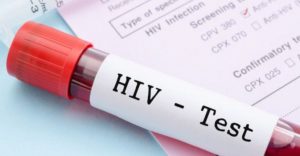Johnson and Johnson announced first-in-human clinical data for an investigational HIV-1 vaccine regime in development at its Janssen Pharmaceutical Companies
Quot: The mosaic immunogens are delivered through viral vectors, including Janssen’s AdVac® technology based on adenovirus serotype 26 (Ad26). The viral vectors are combined with other components such as soluble proteins to form mosaic-based prime-boost vaccine regimens that first ‘prime’ and then ‘boost’ the immune system, with the aim of producing stronger and longer-lasting immunity to HIV.” – Maria Pau, Senior Director – Compound Development Team Leader, HIV Vaccines Janssen Pharmaceutical Companies of Johnson & Johnson
 First-in-human clinical data to cure HIV
First-in-human clinical data to cure HIV
Human Immunodeficiency Virus (HIV) is a life-changing event that can bring many questions and concerns. Despite recent advances in HIV treatment and prevention, nearly 2 million people become newly infected each year and HIV remains one of the greatest global public health threats of our time.The search for an HIV vaccine began as soon as HIV was first identified as the cause of AIDS over 30 years ago. Several different scientific concepts and components have been tested over the years. An effective HIV vaccine has been challenging to find due to the unique properties of the virus – including its genetic diversity around the world and ability to mutate rapidly. Although past attempts were not successful, today researchers are building on the lessons learned from historical research and leveraging new technologies to test a range of new vaccine concepts.
Johnson and Johnson recently announced encouraging first-in-human clinical data for an investigational HIV-1 vaccine regime in development at its Janssen Pharmaceutical Companies. MediWorld ME got in touch with Maria Pau, Senior Director – Compound Development Team Leader, HIV Vaccines Janssen Pharmaceutical Companies of Johnson & Johnson about the future developments of HIV’s first clinical data.
‘Mosaic’-based vaccine
‘Mosaic’-based vaccines are created from genes from many HIV variants and are designed to protect against a wide variety of subtypes of HIV responsible for HIV-1 infections worldwide.
“The mosaic immunogens are delivered through viral vectors, including Janssen’s AdVac® technology based on adenovirus serotype 26 (Ad26). The viral vectors are combined with other components such as soluble proteins to form mosaic-based prime-boost vaccine regimens that first ‘prime’ and then ‘boost’ the immune system, with the aim of producing stronger and longer-lasting immunity to HIV,” explained Pau.
“In pre-clinical studies, regimens incorporating mosaic vaccines demonstrated protection against infection with an HIV-like virus. The most effective prime-boost regimen in these studies reduced the per-exposure risk of infection by 94 percent and resulted in 66 percent complete protection after six exposures.”
APPROACH Study
In an oral presentation of the early stage Phase1/2a APPROACH Study at the 9th IAS Conference on HIV Science (IAS 2017), the ‘mosaic’ –based vaccine regime from Janssen Vaccines & Prevention B.V. (Janssen) appeared to be well-tolerated and elicited HIV-1 antibody responses in 100 per cent of health volunteers.
APPROACH evaluated the safety, tolerability and immunogenicity (ability to produce an immune response) of various mosaic-based, prime-boost vaccine regimens for HIV-1. These vaccine regimens contain two prime doses of the mosaic viral vector Ad26.Mos.HIV and two boosts of either Ad26.Mos.HIV, MVA-Mosaic and/or different doses of the soluble protein Clade C gp140 adjuvanted with aluminum phosphate.
“APPROACH was a Phase 1/2a study in 393 healthy HIV-1-uninfected adults in the US, Rwanda, Uganda, South Africa and Thailand. In the APPROACH trial, most of the mosaic-based vaccine regimens tested appeared to be well tolerated and induced an antibody response in 100 per cent of study participants. This means that the vaccine has the ability to induce an immune response. However, the actual ability of this vaccine to prevent HIV infection in humans has not yet been studied or proven. A number of additional, larger studies need to be conducted to test whether this vaccine actually reduces the number of new infections.
“The APPROACH findings are encouraging, but early-stage (Phase 1/2a) results. We are at an early stage of the testing process, and a number of additional, larger studies (Phase 2b and Phase 3) need to be conducted to determine whether this vaccine has actual efficacy in reducing HIV infections,” added the Senior Director.
AdVac technology
AdVac® viral vector technology is based on the development and production of viral vectors (gene carriers) based on a type of adenovirus (a common cold virus). These vectors have been modified so that they cannot replicate. AdVac® viral vector technology is flexible and allows vaccine development against various infectious disease targets, and has been extensively evaluated in humans for diseases including HIV, Ebola, Malaria, TB, Influenza and RSV, showing good safety profiles and induction of robust humoral (antibody) and cellular immune responses.
Jansen Vaccines’ ultimate goal is to develop a safe and effective ‘global vaccine’ to help prevent HIV, one that is effective regardless of the sub-type of HIV that is prevalent in any specific region.
Significant progress
Significant progress has been made in the global battle against HIV/AIDS, including the development of critical antiretroviral treatments and HIV prevention tools, yet the disease remains one of the greatest global health threats of our time. An estimated 37 million people are currently living with HIV-1 globally, and nearly 2 million people become newly infected each year. An effective HIV vaccine is elusive due to the unique properties of the virus – including its genetic diversity and ability to mutate rapidly.
“As part of our deep commitment to tackling the HIV threat, Janssen Vaccines is aiming to develop a vaccine for the prevention of HIV-1 infection, with the goal of helping to stop the spread of HIV.”
Next stage
Based on available pre-clinical and clinical data, a lead vaccine regimen of Ad26.Mos4.HIV and Clade C gp140 has been selected for evaluation in a Phase 2b “Proof of Concept” efficacy study involving up to 2,600 healthy adult women aged 18–35 years in southern Africa. Janssen aims to initiate the Proof of Concept study towards the end of 2017 or early 2018.
“Janssen Vaccines is dedicated to advancing human health by developing potentially transformational vaccines to prevent and intercept life-threatening infectious diseases and is making progress in the development of vaccines to address a number of infectious diseases including Ebola, RSV and influenza,” Maria Pau concluded.














